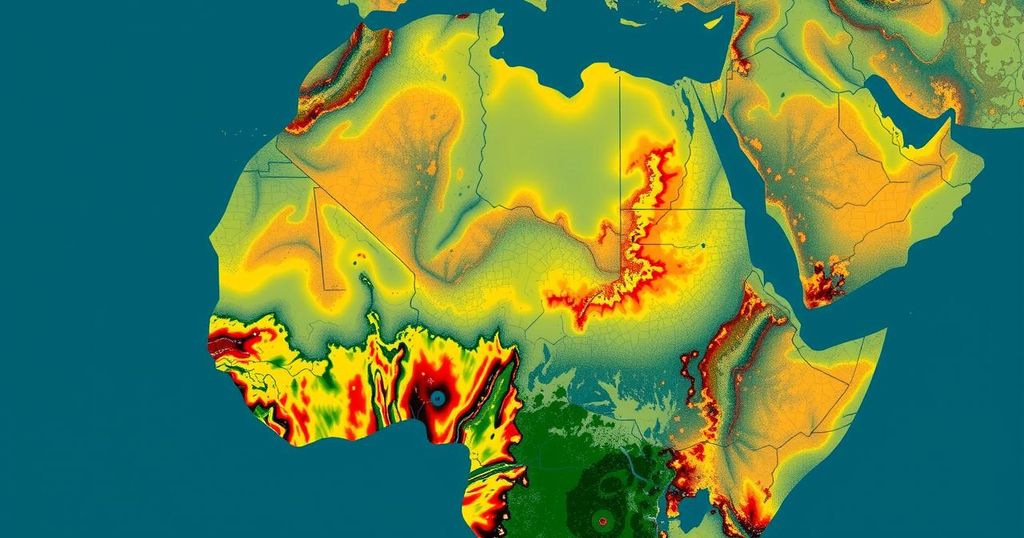Senegal’s development aspirations are significantly threatened by climate change, as the country struggles with high poverty levels and inequalities despite economic growth. The Climate Change and Development Report (CCDR) suggests comprehensive climate action as a solution. It emphasizes the potential of renewable energy and necessary investments in climate resilience to achieve sustainable development, requiring active participation from both the public and private sectors for effective mobilization of resources.
Senegal is facing significant challenges in realizing its development goals, primarily due to the impacts of climate change. The country has recorded rapid economic growth but continues to struggle with poverty reduction and inequality. With its extensive coastline and dependence on natural resources, Senegal is particularly vulnerable to climate-related risks, threatening social and economic progress. Consequently, the Climate Change and Development Report (CCDR) recommends actionable steps to enhance climate resilience while simultaneously pursuing economic development. The CCDR underscores the necessity for immediate climate action to mitigate risks stemming from climate change and to promote inclusive growth. It highlights that the financial investment required for climate initiatives is modest in relation to Senegal’s overall economic capacity, yet promises substantial long-term benefits. The report emphasizes that transitioning to renewable energy will not only address climate issues but will also facilitate economic advancements, positioning Senegal toward achieving its net-zero targets by 2050. Furthermore, Senegal exhibits great potential for renewable energy production, particularly solar energy, which represents the most sustainable and cost-effective method to meet rising energy demands. The adoption of domestic gas as a transitional energy source is recommended to gradually replace high-emission fossil fuels and stabilize electricity costs. Adaptation strategies identified in the report prioritize essential investments that enhance resilience against climate uncertainties, ultimately safeguarding both livelihoods and economic activities. To achieve these ambitious objectives, colossal climate financing is required, surpassing current levels of financial investment. Engaging both public and private sectors is critical for mobilizing necessary resources and ensuring that investments in climate-resilient solutions yield positive outcomes. The CCDR identifies various avenues for government action, including incentivizing private sector participation, reinforcing the domestic financial landscape, and exploring innovative funding instruments. The World Bank Group’s CCDRs serve as vital tools for integrating climate change considerations into national development agendas. They provide a framework for prioritizing interventions that can substantially reduce greenhouse gas emissions while addressing urgent development needs in the context of climate resilience. By outlining specific, impactful actions, the CCDR aims to foster collaboration among governments, citizens, and development partners in achieving a low-carbon and resilient Senegal.
The context of Senegal’s climate-related challenges is critical to understanding the findings of the Climate Change and Development Report (CCDR). Over the past decade, Senegal has emerged as a fast-growing economy within Sub-Saharan Africa, aided by favorable external conditions. However, persistent vulnerabilities, particularly concerning climate risks, have hindered significant advancements in reducing poverty and inequality, leading to an urgent need for comprehensive strategies that link climate action with sustainable development.
In conclusion, the CCDR presents a compelling case for integrating climate action into Senegal’s development strategy. The vulnerabilities related to climate change are profound, threatening the socioeconomic fabric of the nation. By leveraging its renewable energy potential and prioritizing climate-resilient investments, Senegal can achieve substantial progress toward both climate objectives and inclusive economic growth. The active collaboration between public and private sectors is imperative for catalyzing necessary investments, ensuring a resilient and sustainable future for the country.
Original Source: www.worldbank.org






